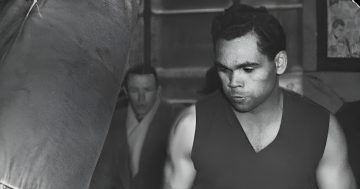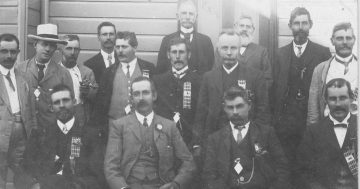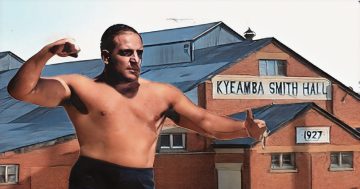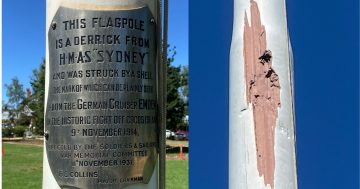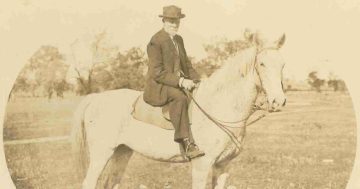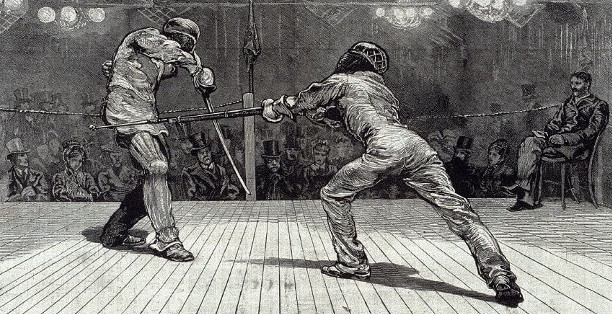
Sword Versus Bayonet was a popular martial arts contest in the 19th Century. Photo: Harper’s Weekly, 1874.
Sword fighting is not a martial art often associated with Australia, but from colonisation to the early 20th century, sporting combat with broadswords was a rare but popular public spectacle.
In fact, there is a strong case for the claim that Australia retains the World Broadsword Championship title.
While not a common pastime for civilians, public exhibitions involving combat veterans and soldiers drew large crowds in towns and cities, including Wagga Wagga.
“An entertainment of a novel character in Wagga is advertised to take place at the Oddfellows Hall on Wednesday evening next,” declared the Wagga Wagga Advertiser in August 1889.
“Mr Zouche, who has been a lieutenant in the Austrian Hussars, has challenged Mr MJ Crotty to a combat with broadsword, foil, bayonet v sword, and single sticks.”
The Austrian lieutenant was described as an “expert swordsman and fencer” while Crotty, the local cavalry drill instructor, was known for his “prowess in all exercises of this character”.
While the story laments the decline in swordsmanship over recent years, the reporter notes that “it is still reckoned a gentlemanly accomplishment in the continental countries of Europe” and is “an exercise that has much to recommend it. It certainly is in many ways preferable to the other displays of the ‘noble art of self-defence’ [aka boxing] which are so extensively patronised by colonial youths”.
The challenge was of course accepted and Wagga’s sporting gentlemen waited with eager anticipation for the day of the exhibition to arrive.
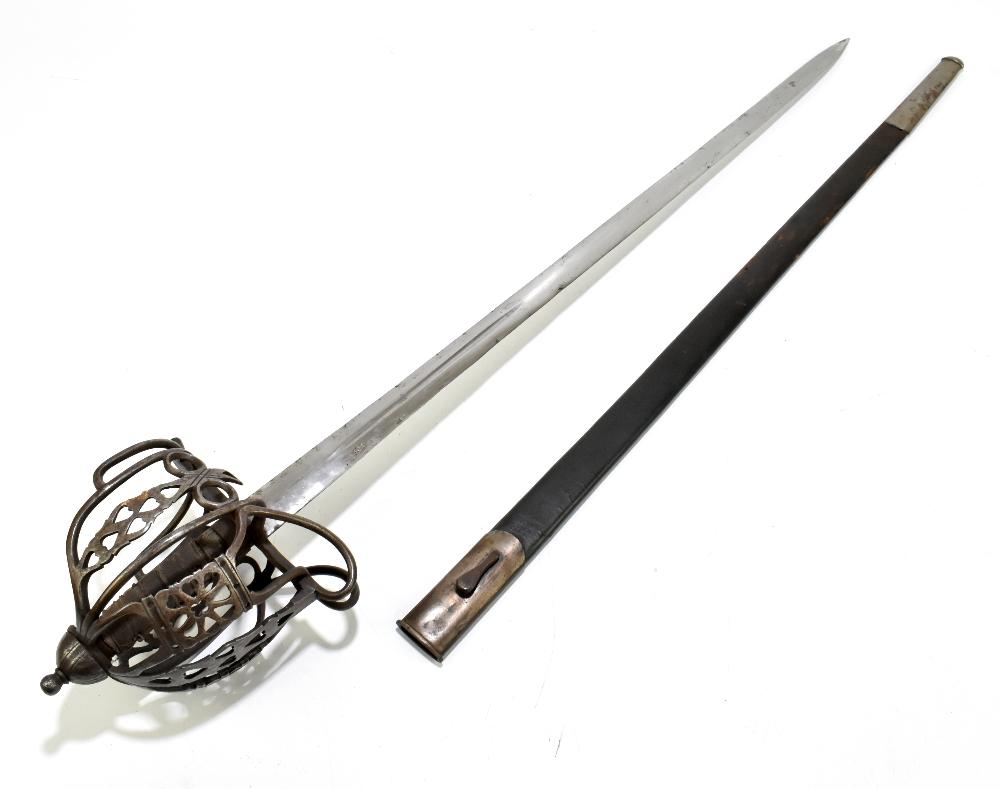
An example of a 19th-century Scottish basket-hilt broadsword. Photo: Adam Partridge Auctions.
For those wondering what a broadsword actually is, they are defined as a one-handed, straight-bladed, double-edged sword and, at this time, included a ‘basket hilt’ to protect the hand.
Primarily used by the British, they are made from spring steel and are not as heavy as most people imagine, weighing between 1 and 1.5 kg.
In the late 19th century, a series of duels took place in Sydney and Melbourne to contest the World Broadsword Championship.
The world’s leading swordsman in the 1890s was a British soldier and Victoria Cross recipient named Captain Duncan C Ross.
In 1889, he travelled Down Under to deal with an Irish Hussars Captain, EN Jennings, who was claiming to have taken his crown.
A mounted broadsword contest for the “championship of the world “was held in front of thousands of spectators on the sand at Bondi Beach.
A broken sword halted the contest with Jennings leading 7 touches to 3 and the competitors returned the following week where Ross fought back to win 11 points to 9 and retain his title.
The rivalry between the pair was fierce and in January 1890, they squared off again in front of 25,000 people at the Melbourne Cricket Ground where Jennings got his revenge.
From here, the vanquished Captain Ross departed for the US and Jennings soon lost the title to Australia’s champion, Sergeant JR Donovan.
Donavan fought the last ever verified World Broadsword Championship in 1891 against another local, Professor Parker, in front of 9000 spectators at Sydney’s Coogee Palace Aquarium.
Parker won a decisive victory and was never challenged.
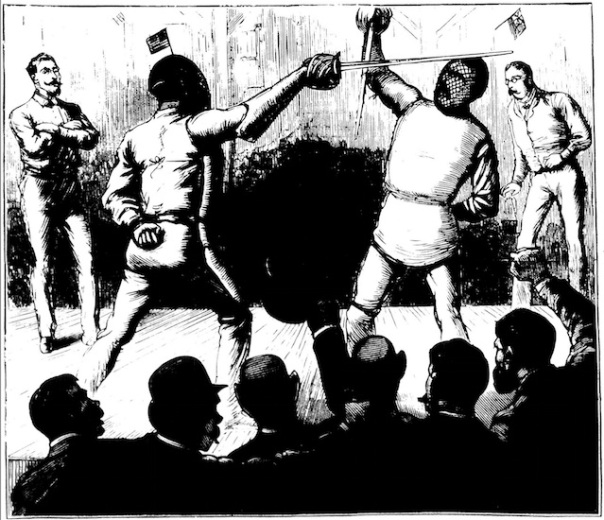
Captain Duncan C Ross fights another British officer in the United States in 1884. Photo: National Police Gazette.
Meanwhile, back in Wagga Wagga, Lieutenant Zouche and Mr MJ Crotty squared off in the Oddfellows Hall on Fitzmaurice Street in August of 1889.
“A very clever display of swordsmanship was given, eliciting hearty and well-merited applause,” reported the Advertiser.
It seems that the Austrian was the better swordsman, defeating the local with broadsword, foil and single-stick (a wooden pole with a hand guard), but Crotty managed to hold his own when they duelled bayonet against sword.
Local solicitor and Captain of Wagga’s infantry corps, Harry Fitzhardinge, stood second for Crotty and during the interval, fenced with Zouche’s offsider, Lieutenant Lorimer.
“The Captain smote the Lieutenant with great vigour, and the Lieutenant was not slow in returning cut for cut, hearty applause greeting both officers at the conclusion of their contest.”
With a few rounds of boxing thrown in for good measure, it seems that the event was a roaring success and “was well and fairly carried out”.







